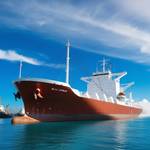Maritime Piracy in the Horn of Africa:
The Horn of Africa, strategically positioned at the nexus of global trade routes, has long faced the specter of maritime piracy. The waters off Somalia, in particular, have been notorious for piracy incidents that have disrupted international shipping, imperiled seafarers, and prompted multinational military responses. This region's unique combination of socio-economic, political, and geographic factors has engendered a breeding ground for modern piracy, posing complex challenges for the international community
Historical Context
Piracy in the Horn of Africa is not a new phenomenon. Historical records trace acts of piracy in these waters back centuries, often emanating from the Horn's strategic position alongside some of the world's busiest maritime corridors, including the Bab-el-Mandeb Strait and the Gulf of Aden. However, the modern resurgence of piracy began in earnest in the early 2000s, correlating closely with the collapse of Somalia's central government in 1991, which spawned widespread lawlessness and economic desperation.
Catalysts for Modern Piracy
Several interrelated factors have contributed to the rise of piracy in Somalia:
- State Collapse: The disintegration of Somalia's government resulted in absence of law and order, creating fertile ground for criminal enterprises.
- Economic Hardship: Extreme poverty and lack of employment opportunities pushed many young Somali men towards piracy as a means of subsistence.
- Illegal Fishing and Toxic Waste: Foreign vessels engaging in illegal fishing and dumping toxic waste along Somalia's coast further depleted resources available to local fishermen, driving some to piracy out of desperation.
- Geographical Advantages: The extensive and largely unmonitored Somali coastline presents vast areas where pirates can operate with relative impunity.
Methods and Modus Operandi
Somali pirates typically use small, fast skiffs launched from larger "mother ships" to approach and board merchant vessels. Armed with automatic weapons and RPGs, they target ships that are lightly defended, often taking crews hostage and demanding multi-million dollar ransoms. The hijacked ships are then typically anchored close to the Somali coast while negotiations are conducted, sometimes over several months.
Impact on International Shipping
The surge in piracy has had profound effects on global shipping:
- Increased Costs: Shipping companies incur higher costs due to the need for increased security measures, higher insurance premiums, and rerouting ships to avoid high-risk areas.
- Humanitarian Impact: Hundreds of seafarers have been kidnapped and held in harrowing conditions, some for extended periods, causing severe psychological and physical trauma.
- Economic Impact: Piracy disrupts the maritime trade, vital for the global supply chain, leading to delays and loss of goods.
International Response
The international community has mounted substantial efforts to combat piracy:
- Naval Patrols: Multinational naval task forces, including NATO's Operation Ocean Shield, the EU's Operation Atalanta, and the US-led Combined Task Force 151, have been deployed to patrol high-risk waters, escort merchant vessels, and conduct counter-piracy operations.
- Best Management Practices (BMP): Guidelines for shipping companies and vessel operators have been established to enhance onboard security and recommend routing ships through safer corridors.
- Legal and Prosecution Efforts: Enhancing legal frameworks to prosecute and incarcerate captured pirates has been a priority, though it remains complicated due to jurisdictional issues and the need for robust evidence collection.
Current Situation and Outlook
Though instances of piracy have significantly reduced from their peak in the late 2000s due to coordinated international efforts, the threat has not been entirely eliminated. As of recent years, sporadic attacks continue to occur, underlining the need for sustained vigilance and the addressing of underlying issues within Somalia.
Maritime piracy in the Horn of Africa remains a multifaceted challenge demanding a comprehensive approach. While military and legal measures have made significant strides in curbing piracy, long-term solutions must also focus on stabilizing Somalia through political support, economic development, and addressing illegal activities in its coastal waters. Ensuring the safety of one of the world's crucial maritime gateways necessitates ongoing international cooperation and commitment.


















